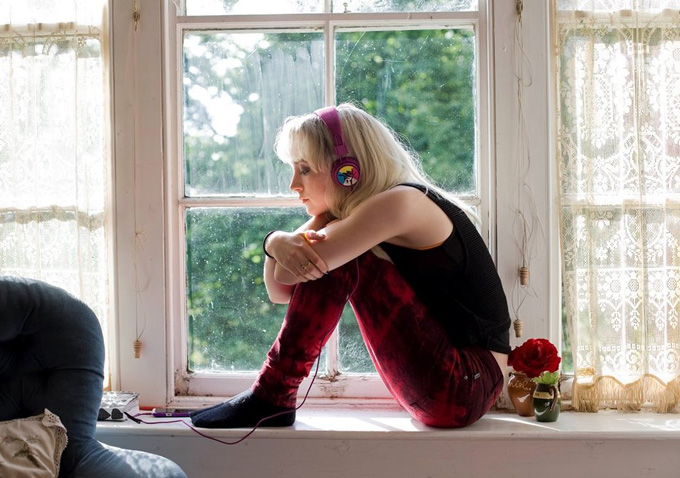
Note the title, “How I Live Now,” and its absence of colons, commas, or other punctuation implying further installments—it’s the first sign of the crucial immediacy to Meg Rosoff’s 2004 YA novel, now brought to the screen by “Last King of Scotland” director Kevin Macdonald. The second is impossible to miss—a nuclear bomb detonation in near-future London—and while the film delivers a dystopian teen romance in the center of its aftermath, an unnerving atmosphere and surprising brutality actually creates tangible jeopardy and tension throughout. That clash of R-rated approach and broad melodrama proves an uneven pitch at times but Macdonald’s signature intensity, combined with another sneak attack performance from Saoirse Ronan, assembles a thrilling genre entry that stands firmly alongside its contemporaries in terms of quality.

The apocalyptic stakes are pushed to the fringes initially—not for narrative convenience but for the narcissism of the film’s 15-year-old American protagonist, Daisy (Ronan). We meet her passing through several security checkpoints at Heathrow, clad in leather jacket, shoddy dye job, and bright-red headphones, while possessing a profanity-laced internal monologue fixed on self-criticism. She fazes out TV news reports of international tensions with blaring rock music, and this ignorance extends towards her younger English step-cousins, with whom she was sent to live on their farm outside London for the summer.
Soon she meets the oldest of her relatives, Edmond (George MacKay), who looks after siblings Isaac (“The Impossible” actor Tom Holland) and Piper (Harley Bird), while her government-employed aunt (Anna Chancellor) analyzes statistics inside the house. As he’s introduced in sun-lit slow-motion, feeding a pet hawk and glancing mysteriously at Daisy, it becomes quite clear that yes, Edmond will be Daisy’s love interest, and no, the rest of the family will think nothing of the notion. Macdonald doesn’t either, in a clumsy grasp on their dynamic that half-invests in its taboo-breaking status, but leaves Ronan at too severe of a shift from wound-up brat to exploratory lover. MacKay and the actress are both likeable screen presences though, so we are endeared to their characters, but just barely.

Thankfully, it is with the mother’s departure for Geneva—and the subsequent bombing of London a day later—that Macdonald and his young cast settle down into a markedly different film; a sensual, claustrophobic character study that tests a family’s resolve against impending wartime chaos, as in “When The Wind Blows” or Cate Shortland’s recent “Lore.” When the British military suddenly invades the farm and separates Daisy and Edmond, MacKay essentially exits the picture, leaving the narrative instead to Daisy and her attempts with Piper to return home. Newly stripped down and awash in silence and environmental fatigue—rain falling on ash resting on wilted flowers, expired vehicles and animals littering the roads—the narrative allows Macdonald time to breathe and also showcase some haunting digital cinematography from DoP Franz Lustig.
Actual mechanics of the war are left unseen—there are rumblings of terrorists, contamination, and overrun borders—and the conflict is largely (and wisely) kept to Daisy’s close reaction to Britain’s collapsing infrastructure. Opening moments aside, Ronan carries that gradual shift wonderfully, hinting at her character’s anorexia and constant anxiety with a vulnerability unlike anything else she’s done previously. The acting amongst the children is strong as well, with Holland and Bird naturally playing the most naïve members of the group caught between reality and imagination as they encounter society’s decline. And it does decline. Twitchily overseen by electronic artist Jon Hopkins’ superb, propulsive score, Daisy and Piper journey from town to countryside, witnessing bloody and dire circumstances of their friends along the way.

However, it is when those bleak conditions coincide with reminders of Edmond and Daisy’s relationship that the film falters. Adaptations of younger-skewing fiction always face the question of faithfulness to source material, especially when it comes to their more gruesome or harrowing passages. Incidentally, Macdonald has no qualms in keeping Rosoff’s story far from watered down: violence is doled out to adults and children alike in shockingly graphic fashion, mass graves fill parking lots as foxes eat the remains, and Macdonald finds his bleakest moment near the end with that seemingly essential (and elbowed in) element of apocalypse cinema—rape by unhinged military soldiers. By the time a scene with a character shot in the head but still alive, crawling helplessly toward his murderer, cuts to lushly-lit visions of a shirtless Edmond calling Daisy’s name, the variance in tone and depiction borders on disbelief.
It brings up a curious issue regarding Macdonald’s final product for an audience. To say it is only for tweens’ enjoyment, even though the rating prohibits them, denies the film’s many stunning qualities, as are claims that its violence and constant language limit it strictly for adults. Companies like Laika excel in creating children’s films unburdened by tackling dark subject matter because they know kids can handle it; but what of the gritty adult drama that attempts to outrun its broader YA elements? As “How I Live Now” shows—commercial prospects be damned—it results in an intense, fascinating character study nestled in an inconsistent shell. Macdonald’s unique direction and Ronan’s jittery performance makes the film a worthy watch; now let’s hope the book’s younger fans find guardians aware of “Grave of the Fireflies” and its disturbing merits. [B]
This is a reprint of our review from the 2013 Toronto International Film Festival.

